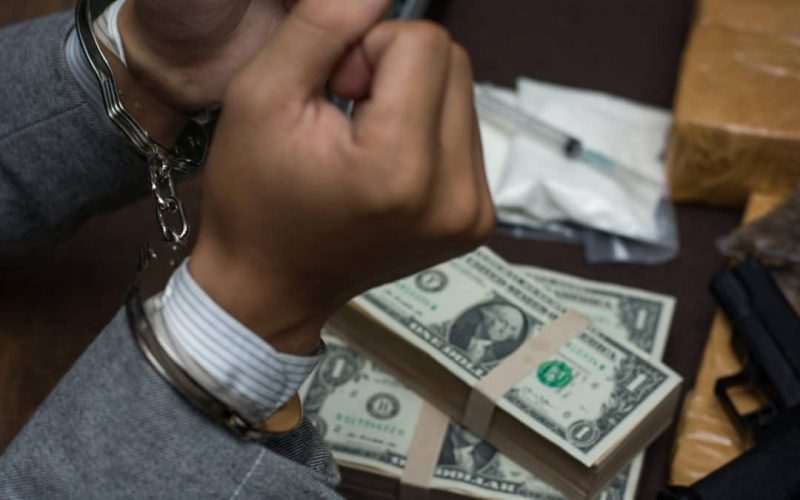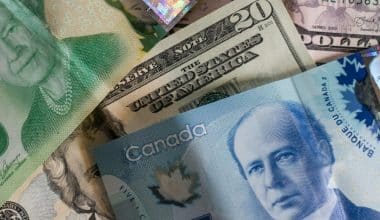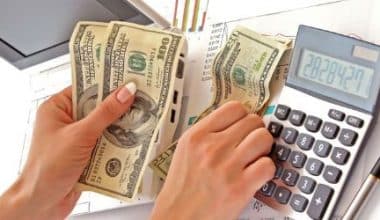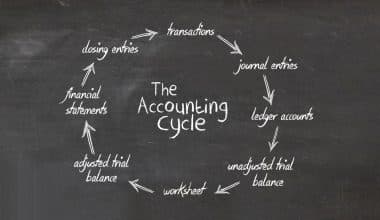Embezzlement is when someone takes someone else’s money and uses it for personal gain. It is more likely to happen in the workplace. If you have been accused of embezzlement, you are entitled to excellent legal assistance. Being accused of stealing and abusing trust can damage your freedom and capacity to find work in the future. Even if you are innocent, getting charged with a crime can have negative consequences. That is why we wrote this post to help you with all you need to know about federal embezzlement charges.
What Is Embezzlement?
Embezzlement is a type of white-collar crime in which someone or something misappropriates assets that have been entrusted to them. The embezzler obtains the funds legally and has the right to possess them in this sort of fraud, but the assets are then used for unwanted reasons. Embezzlement is a violation of a person’s fiduciary responsibility.
Overview
Individuals who have access to an organization’s funds are required to keep those monies safe and put them to their intended use. It is prohibited to gain access to that money with the goal of converting it to personal use. Diverting cash to accounts that appear to be authorized to receive payments or transfers is one example of such activity.
The account, on the other hand, is merely a front through which the individual, or a third party with whom they are partnering, might receive funds. To disguise the transfer of funds as a genuine transaction, an embezzler could generate bills and receipts for business operations that never occurred or services that were never seen.
An embezzler may work with a partner who is designated as a consultant or contractor on bills and receives payment but never delivers the services for which they are being paid.
Embezzlement can take many forms, both minor and huge. Embezzling money can be as simple as a cashier pocketing a few dollars from the register. Embezzlement occurs on a larger scale when CEOs of huge corporations wrongfully expense millions of dollars and transfer the monies to personal accounts. Also, embezzlement can result in significant fines and years in prison, depending on the severity of the offense.
Embezzlement charges
Depending on whether the embezzlement is a felony or a misdemeanor, the criminal penalties differ. Felony convictions frequently result in the court imposing higher penalties. Prior convictions, the total worth of the monies or things embezzled, and any mitigating circumstances are also considered. The following are examples of penalties:
- Up to 6 months in jail and a maximum $500 fine for a petty misdemeanor
- Up to 1 year in jail, up to $1,000 fine, and up to 1 year of probation for a full misdemeanor
- To 18 months in prison for a fourth-degree felony
- Up to 3 years in prison for third-degree felony
- Up to 9 years in prison for second-degree felony
Types of Embezzlement in New York
The quantity of money taken as part of an embezzlement charge determines the level of severity assigned to the offense. Such sanctions could have a significant short- and long-term influence on a person’s life.
If you have been charged with any form of embezzlement in New York, it is critical that you seek legal advice as quickly as possible. A New York theft lawyer can help develop a case to help their client get a favorable conclusion.
#1. Degrees of the Charge
Fourth-degree grand larceny is when a person steals more than $1,000. A charge like this entails a sentence of one-third to four years in jail. It’s a felony of the Class E variety.
If the quantity of money is more than $3,000 but less than $50,000, the crime is classified as a Class D felony, punishable by two and a third to seven years in jail.
The majority of embezzlement cases, however, occur between $50,000 and $1,000,000. A loss of this magnitude can be disastrous to many firms. This sum is astonishing to many prosecutors and judges, and it is in bail petitions and sentencing. Grand larceny in the second degree is the felony in question, and it carries a sentence of five to 15 years in jail.
Grand larceny in the first degree is when a person takes more than $1 million. This is a Class B felony that carries a sentence of eight and a third to twenty-four years in jail. In New York City, this is one of the most serious types of federal embezzlement charges.
#2. Possessing Stolen Property
In New York, on the other hand, a person can be punished with federal embezzlement charges if they possess property that is not theirs. Money is a property in the context of federal embezzlement charges. The crime will be greater if the offender does not now have all of the money in their bank account or if the embezzlement took place over a few years.
Although the perpetrator may have committed numerous different offenses, the actual larceny and theft may be combined. For example, if a person steals $10,000 in six separate thefts, the crime is charged as one Class C felony rather than six Class D crimes because the offender stole more than $50,000.
At the same time, there might be six counts of second-degree forgery and first-degree fabricating company documents. These are felonies of class D and E, respectively.
That money, whether it is in a cash form in the individual’s apartment, house, or has been spent does not have to be physically present for the person to be with the offense. The money is for the duration of the activity.
#3. Falsifying Business Records
Falsifying company records in the first degree is another sort of crime that can be included in an embezzlement indictment in New York City. When a person changes the records of a business or an enterprise, or when they delete or erase records, this occurs.
The charge could also arise if the person fails to make an entry in the records and has the purpose to commit another crime, such as theft or larceny while committing such an act.
It is a felony if the offender is attempting to hide the fact that they are stealing or is attempting to further their theft. This is a Class E felony offense of fabricating business documents in the first degree. For each altered or false business record, a charge of this nature carries a sentence of one-third to four years in jail.
How Embezzlement Occurs
When someone steals or misappropriates something they were entrusted to manage or safeguard, it is embezzlement. Embezzlement does not need that the property or asset be of significant worth. Although similar to fraud, embezzlement differs in that the embezzler had permission to use or manage the property or finances.
Embezzlement can be with other types of fraud, such as Ponzi schemes, in some cases. In such circumstances, the embezzler deceives investors into entrusting them with their assets. So that they might invest on their behalf, but the money is instead for personal gain and enrichment. Maintaining the deception frequently entails finding new investors in order to bring in more money to placate previous investors.
Aside from money, an embezzler may transfer other assets. An embezzler may claim real estate, business vehicles, smartphones, and other company-owned hardware, such as laptops, for personal use.
Employees in the government sector may commit federal embezzlement charges by taking local, state, or national funds for themselves. When money is needed to complete contracts or support projects, and a member of the staff skims some of the money that was earmarked, this might happen.
Is Embezzlement a Felony in Illinois?
The crime can be prosecuted as anything from a simple infraction to a felony of the highest possible class. In Illinois, the crime of embezzlement falls within the jurisdiction of the Theft Statute (720 ILCS 5/16-1). Theft or embezzlement is committed by a person when the following circumstances are present: the embezzler and the victim have a relationship characterized by trust and reliance on one another
What are Examples of Embezzlement?
The perpetrators of embezzlement may fabricate invoices and receipts for actions that did not take place, and then utilize the money paid for such operations to pay for their own personal costs. One type of embezzlement is represented by Ponzi scams. The destruction of employee data or the theft of corporate funds is two other examples. Theft cost American companies roughly $400 billion each year.
What is the Most Common Form of Embezzlement?
The most typical types of embezzlement involve the theft of cash and the use of business credit cards for personal expenditures. In addition, some people who steal money employ technology to make unauthorized changes to computer systems, which gives them the ability to carry out financial operations.
How is Embezzlement Proven?
Keep in mind that in order to prove embezzlement, the prosecutor must first demonstrate that the defendant intended for the victim to never again be able to use the property in question. It is possible to demonstrate that the defendant did not intend to deprive the plaintiff of their property if it can be shown that the property was lost after being handed to the defendant by accident.
How to Prevent Embezzlement
Theft and embezzlement cost businesses $400 billion per year and are responsible for more than half of all business failures. 2 Employers, on the other hand, can devise measures to combat white-collar crime.
Embezzlement begins with a breach of confidence by a person who has been entrusted with the responsibility of looking after another’s property or money. One of the most reasonable initial measures a company can take is to thoroughly vet potential workers. In addition to doing complete background checks, personality tests can be used to examine character traits and expose unwanted habits.
A security and surveillance program, especially when carried out by a professional risk management team or an impartial third party, can help deter corporate crime. Internal controls monitor behaviors and allow anonymous reporting of questionable activity. As well as periodic audits that reveal misappropriations
Early detection reduces losses and safeguards the company’s brand as well as the people it serves. Employers should make it apparent that they have a zero-tolerance policy for illegal conduct like embezzlement and that the penalties for such violations are passed across. Every business should foster an atmosphere of honesty and fairness among its employees. Urging them to be vigilant and report any instances of wrongdoing.
Life after Embezzlement charges
Despite the fact that most white-collar crimes do not have the same negative connotations as other crimes. They can still have a significant impact on a person’s life. Embezzlement accusations. For example, have a nasty habit of following people about indefinitely with no hope of getting them off the hook. Allegations of thievery are unlike any other activity that might bring your character into question. If you are being of federal embezzlement charges, you should seek the advice of an expert company law attorney. They can assist you in defending yourself against charges that could permanently damage your reputation and character.
One of the many offenses classified as intentional torts is embezzlement. While these crimes are very common in the private sector. They have the potential to harm an individual’s reputation and ability to find work elsewhere. After all, who wants to work for someone who has been accused of stealing from a former employer? That wants to work for a business owner who is of stealing from his or her employees? No one, to be precise. And, because embezzlement allegations can have a substantial, negative impact on a person’s professional life, it’s critical that those facing these charges find a strong, qualified legal representation.
There is a defense to accusations of embezzlement. Individuals facing false allegations can rehabilitate themselves and their reputation by engaging with an experienced business law attorney. Attorneys who practice business law have the skills and experience to spot errors. In false claims and utilize them to undermine the prosecutor’s case.
Federal embezzlement charges
Embezzlement is the illegal removal of monies or property to a person or group who seized it from the party who had a legal title at the time of the theft.
For embezzlement to constitute a federal crime, it must be a theft directly against the US government. Or one that follows the factors for the violation of other federal offenses by individuals entrusted with the control of the assets in question. Embezzlement is essentially a theft combined with a breach of trust by a person or group in a position of trust to monitor goods of value.
If you, a loved one, or someone close to you suspect that a federal investigation has been opened. Or that an arrest has been made for this type of federal crime, a Fort Lauderdale Federal Embezzlement Attorney can help you fight the federal government’s charges.
One example of a federal embezzlement accusation that follows the principles for other federal crimes handled in federal courts is a wire fraud charge. If a federal employee entrusted with oversight of federal funds or property used the “wires” (telephone, computer, etc.) to commit the alleged crime, the prosecution could charge federal embezzlement, wire fraud, or both. Similarly, because wire fraud is always a federal crime, the government can bring an embezzlement case against anybody or any organization that embezzles money or property, even if the crime does not fit the aforementioned criteria.
Court officers
Anyone convicted of embezzling more than $1,000 from a federal court in the United States faces a fine of up to $250,000 or double the amount embezzled (whichever is greater), ten years in prison, or both. Fines of up to $100,000, up to one year in prison, or both are possible penalties for amounts less than $1,000.
Similarly, failure to quickly deposit money received in the official role of a government employee might result in an embezzlement conviction. Receiving a deposit, loan, or other money belonging to the court from a court employee with the intent to embezzle it is also grounds for embezzlement. Fines of up to $250,000, or up to the amount embezzled (whichever is greater), 10 years in prison, or both are possible penalties for embezzling more than $1,000. A fine of up to $100,000. A year in prison, or both are possible penalties for embezzled funds smaller than $1,000. 645, 646, and 647 U.S.C.A.)
How Do You Prove Someone is Embezzling Money?
When trying to prove someone guilty of federal embezzlement in the District of Columbia, the prosecution will typically focus their evidence on the defendant’s personal records. For instance, financial records can demonstrate that an individual took money from another person and deposited it into their own bank account. Another sign is when the individual spends more money than their salary should allow them to manage.
Is Borrowing Money and Not Paying it Back Stealing?
When you initially borrowed the object in question, you must have had the specific purpose to never return what you took to the owner in order to be found guilty of stealing. If you do not have this intention, you cannot be found guilty of theft. You do not satisfy the requirements for particular intent if you borrowed something and then forgot to give it back to the person who gave it to you.
What is Embezzlement in Banking?
What is embezzlement? It refers to a white-collar crime in which an individual or entity performs deception and misappropriation the assets entrusted to them. Though the assets are acquired lawfully, the usage of the same is for unexpected objectives identifying it as embezzlement. It is a blatant breach of fiduciary obligations.
Why Do People Get Away with Embezzlement?
What are the reasons people get away with embezzlement? The key reason is the trust they have developed with their co-workers, employers and family members. They frequently serve as long-term employees who are trustworthy and committed to the company. Their coworkers disregard the procedures and standard precautions that are in place for their safety because they have complete faith in the individual.
FAQ
Is embezzlement a serious felony?
Felony embezzlement is a far more serious crime, resulting in larger fines and longer sentences. Defendants will face felony embezzlement charges if they are accused of: Embezzling more than $1,000. Embezzling jointly held property.
Do you always go to jail for embezzlement?
Embezzlement of property, money, or services, and many enumerated items, worth more than $950 is grand theft. A conviction carries a jail sentence of up to one year (a misdemeanor). But state prison time of 16 months, 2, or 3 years is also possible for felony grand theft. Less than $500.
How much stolen money is considered a felony?
In order to be a felony theft, the value of the property must exceed a minimum amount established by state law, typically between $500 and $1,000. For example, if a state has a $600 felony theft limit, a person who steals a bicycle worth $400 has committed a misdemeanor.






